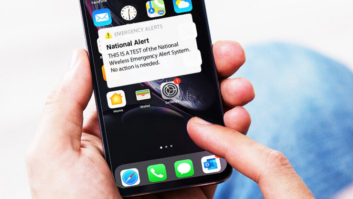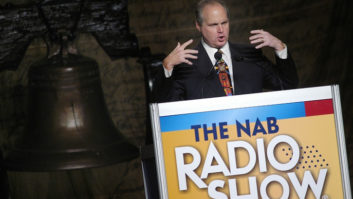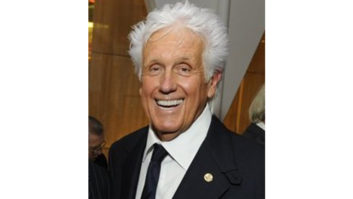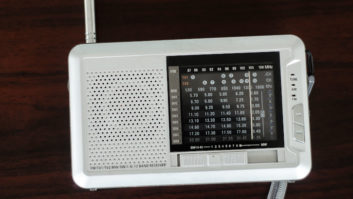The author is membership program director of the National Federation of Community Broadcasters. NFCB commentaries are featured regularly at www.radioworld.com.
Noncommercial radio licensee Humboldt State University, Arcata, Calif., on April 11 announced a major reorganization of its station. Much of the staff and all volunteer producers were let go. Programming at KHSU(FM) — a mix of NPR mainstays like “Morning Edition” and “All Things Considered,” as well as with noncommercial radio favorites such as “Fresh Air,” “The World,” “RadioLab” and “Democracy Now,” and local volunteer-hosted shows — was replaced with programming from a neighboring station.
As you might expect, the move has generated outrage locally. Two lawmakers penned a letter condemning the action. The university’s student senate passed a sense-of resolution critical of the move (while unenforceable, sense-of resolutions are, in the context of parliamentary rules, aimed at expressing a viewpoint). And there have been many protests, letters to the editor and expressions of anger in the days since.
[Read: Community Broadcaster: A Time to Give]
The reorganization caps about a year of feuding at the station. In 2017, Peter Fretwell was hired as the station’s manager. Little coverage between his start date and last year might lead you to believe affairs were going normally. Some KHSU fans online claim the dismissal last May of KHSU staffer Katie Whiteside sparked problems. However, even after Whiteside moved on, it may be an unsolved mystery why particular elements didn’t let go of their differences with management as well. In fact, some of the most heated episodes happened long after Whiteside was elsewhere and presumably not coming back.
Just how bad did it get?

Last September, former KHSU volunteer Matt Knight was barred from the university after he wrote an email suggesting a staff member engage in sabotage of a planned move for the facility. He later apologized for the note.
In January, the station’s Community Advisory Board offered a no-confidence vote against Fretwell. For those unfamiliar, Community Advisory Boards are assigned general advisement duties by the Corporation for Public Broadcasting. Staff evaluations are not one of them, so this call was outside of the Community Advisory Board’s purview. It turns out the CAB has been an epicenter of clashes since last summer.
In February, a university investigation dismissed employee claims of a hostile work environment under Fretwell, coincidentally that allegedly began around the time of Whiteside’s dismissal. Amid that row with Fretwell, claims over his religious and political orientation, it was noted, may prompt future litigation. Another staff meeting last July became cause for other legal issues.
KHSU has had its share of hiccups over the years. In 2003, the station faced charges of false statements to CPB. Longtime fans may have found claims Fretwell was watering down the station familiar, because it was a chorus played in 2008 during another leadership transition. KHSU tried to head off flareups in 2011 over schedule changes.
Today, protesters claim failures at KHSU lie with the university. HSU’s statements have implied the station needed realignment with the university’s mission. Yet, a few matters might reveal concerns for all sides.
Long before Fretwell’s hire, Whiteside’s termination or HSU intervention, there were clouds on the horizon. Independent audits indicated financial issues. While it is an inexact science, noncommercial media assessments generally suggest that, when donors and underwriters decrease, it is usually an issue with relevance. There are many noncommercial stations in KHSU’s signal area, providing ample competition. In KHSU’s case, trouble was brewing for awhile, and, combined with the civil war going on there, Humboldt State may have decided to do what those in tech call a hard reset to fix the problems. We can all disagree with that decision, but the looming challenge of building an audience to support KHSU is an enduring one.
Then there is the university’s student-run low-power FM, KRFH. It’s astonishing how few batted an eye about the fact KHSU received so many resources and KRFH received virtually no funding. You do not have to try hard to hear whispers about the aging of public media’s donor base and listenership. And, if KHSU protests are any indication, the station might have had difficulties attracting the next generation. Yet here, on the same campus, was literally the future of community media toiling in obscurity. HSU hints it will try to engage students more. Administrators would do well to provide more support for the campus’ student-powered LPFM and to expand student professional development opportunities at KHSU. Empowering our next wave of community radio leaders to learn is a topic everyone should be able to agree on.
The loss of noncommercial media jobs and the end of long running volunteer programming are tragic for a community like Arcata, KHSU’s city of license. Dimming fortunes at KHSU were another dilemma for an organization that appeared to have simmering conflicts already on the front burner. The university has pledged to reboot its radio station, as opposed to selling it as has been the trend across the nation in college radio. We can only hope all parties endeavor to rechristen a media organization that serves the students, the city and the educational mission that everyone appreciates.
[Subscribe to our newsletter and get it delivered right to your inbox.]







